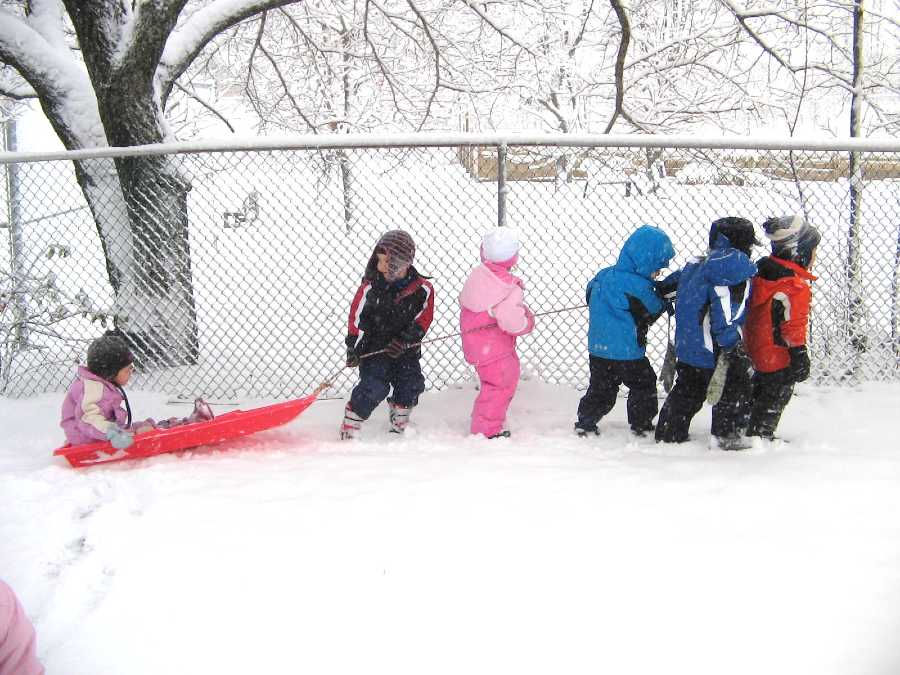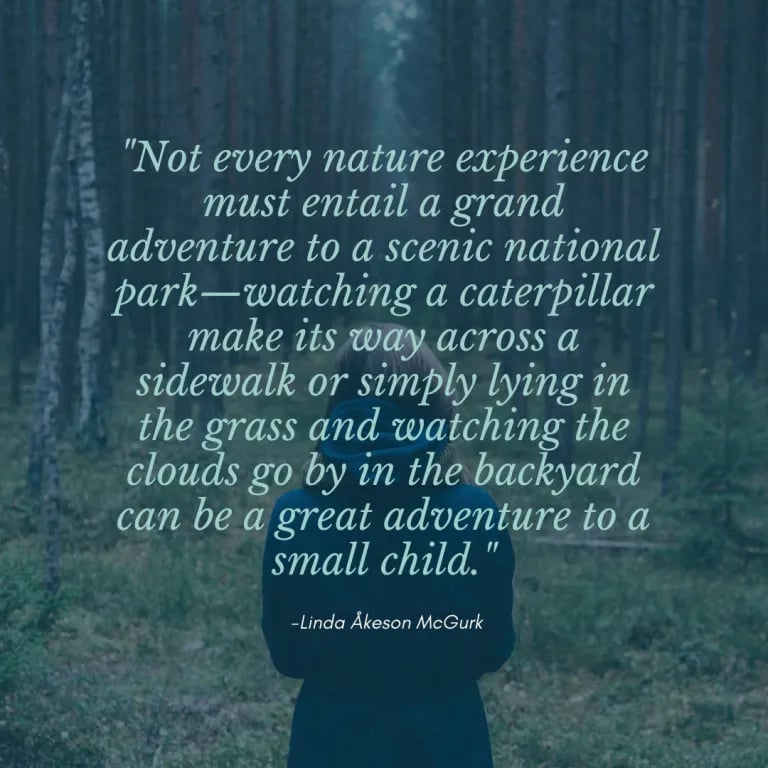
Are you feeling like all you see are barriers when you think about becoming a nature-based early learning program?
If so, we see you!!! At Discovery Professional Learning we are passionate about making nature-based education accessible to all children and educators. In our work with educators from all over the country we hear some common barriers such as buy-in from stakeholders, money, resources, and space.
We hope to create conditions for educators to think about how we they overcome these barriers regardless of their location, outdoor space, budget, or resources.
We are able to provide support from over 40 years of experience in operating a licensed nature-based early education program. We are committed to bringing our vision of “Nature education for all” to life.
We have supported educational programs and educators from all across Canada with their classroom goals. We have seen that offering a high-quality nature education program is possible and we can help you solve the common challenges you may be facing.
1. If your barrier is buy-in from your stakeholders: If you believe that children deserve access to early childhood education that is immersed in nature but don’t have the confidence to know how to communicate this to families, colleagues, or your management...we understand!! It took Discovery Child Care many years to actively communicate about its mission. Now, we are known as, “The child care that goes out in the rain.” This didn’t happen overnight. If this is your issue, it is key to have a constant stream of educational and informational content going out to your community. The key to this is to ensure that you clearly communicate why this philosophy is important and all the benefits it has for both short-term and long-term holistic development. This can include:- Social media posts
- Newsletters
- Blogs
- Information nights
- Pedagogical documentation
In our work with organizations that are struggling with buy-in, we encourage them to audit their online presence. Consider the photos you post and the messages you put out about the outdoor environment.
To get you started, we have created a FREE family letter that will address the common barriers many have with nature-based learning. Click here for a FREE family letter about Nature Based Education

2. If your barrier is money, resources, or space: You may be interested in offering this unique philosophy for children but you feel like you do not have access to the money and resources to make this happen. Karen has a favorite saying that we use all the time in our programs…”It’s not about the stuff.” Through our extensive research on the forest school ethos and living in this philosophy for close to a decade, we have learned that an amazing forest school/nature-based program can be offered with limited resources, space, or money. The history of the Forest School Philosophy was born out of a lack of resources and space. “The world's first known forest school was created by Ella Flautau in Denmark in 1952. The idea formed when she and her neighbors' children began gathering daily in a nearby forest, an unofficial form of daycare that elicited great interest among other parents in the community. The parents formed a group and created an initiative to establish "walking kindergartens" out of the Waldorf-Steiner approach to education- child-led and play-based, with adults as facilitators, not teachers. Forest schools, or Naturbørnehavens, started popping up throughout Denmark in the 1950s as the country struggled with a lack of indoor space for young childhood education centers. Regular outdoor learning for older children is referred to by the term: udeskole” (Forest school foundation, pg.1, 2020).
We believe that it first starts with educators understanding why connecting to nature is important to them. Richard Louv reminds us that, “We can find nature in the sidewalk cracks.” We can start small by cloud watching or searching up animal tracks on the web.
One of our favourite strategies to overcome the barriers of resources, money, and time is our use of what we call, “Adventure Bags.” Are you looking to plan an outdoor education program for your students, but unsure how you can carry all the stuff you’ll need to make it an inclusive, fun and safe environment for the children? By using adventure bags, you can easily overcome some of the common barriers associated with outdoor education, and seamlessly provide your students with the materials and tools they need to curiously explore the outdoors. We have created a four-page free how-to guide that will help you get started. Click here for your free guide on adventure bags
When it comes to space, we know that many do not have access to an outdoor environment that is rich with grassy fields or forested areas. This is why we are such huge fans of Coyote's Guide for Connecting to Nature. In this book, you will find over 500 pages of ideas, activities, rituals and routines that are scientifically proven to grow a connection to nature for learners of all ages. This amazing resource will help you consider new ways that nature-based learning can be integrated into all that you do both indoors and outdoors. We have proudly been using this resource within our programs for over 5 years and it is a great resource for educators of all experience levels. .jpg?width=900&height=600&name=puddle%20(1).jpg)
We know that there is an abundance of information out there about the benefits of nature-based learning for children and adults and how this contributes to a holistic learning experience for both short-term and long-term benefits. We know that it may feel overwhelming and you might not know where to start. We believe that making small, incremental changes each and every day will be the best way to make sustainable and enjoyable changes for all. If you are looking for more in depth training, we have a robust library of learning resources and learn-at-your-own-pace modules. These modules include 2 hours of learn-at-your-own-pace professional development that are focused on specific topics relating to nature-based, child-led, and play-based learning. You can register today and have immediate access to content that will help you solve the day-to-day challenges in your early learning program. We are passionate about relationship-based learning, that’s why our courses are very interactive and have a variety of modalities such as videos, articles, and interactive reflections. Not only that, but all of our virtual modules give you access to a free discussion board that allows you to connect and share with educators from all over the world about the topic you are learning about. This connection provides a space where you can problem solve, share ideas, and create a sense of community with fellow educators.
These modules will provide you with interactive and inspirational resources that can be used in a variety of early childhood environments. These are geared towards the busy educator who may only have 20 minutes a week to put toward their professional goals after working 40 hours a week in a busy classroom. We know you, we see you… and we are here for you! Click here to check out these courses.
